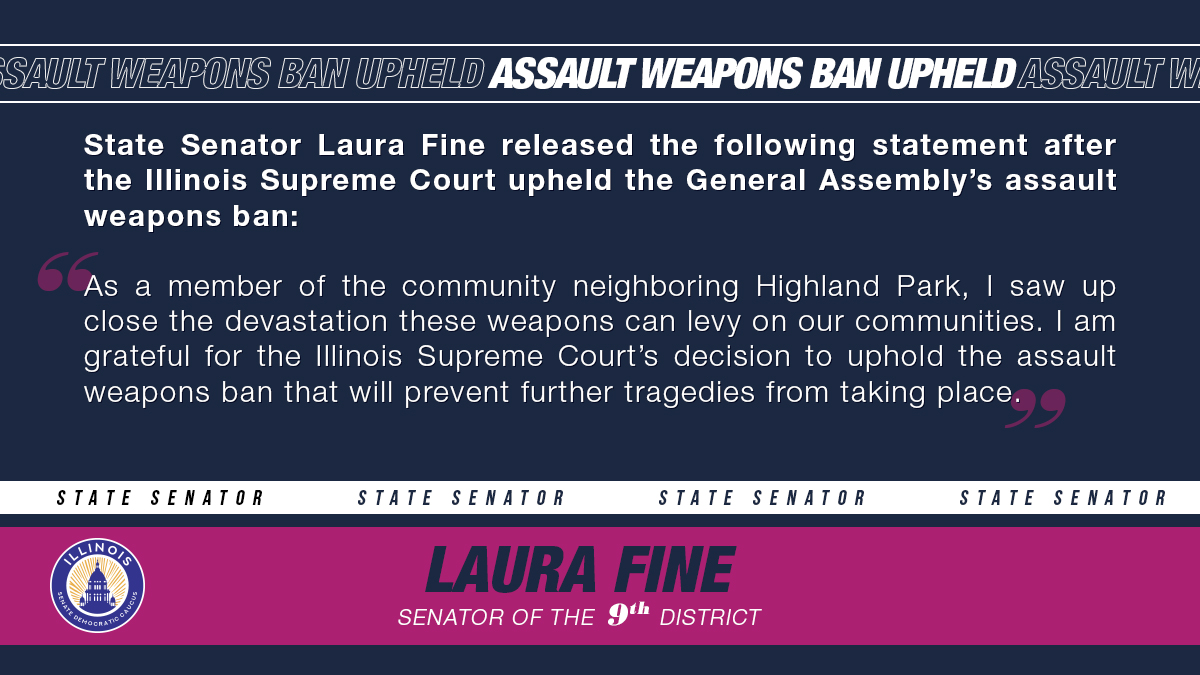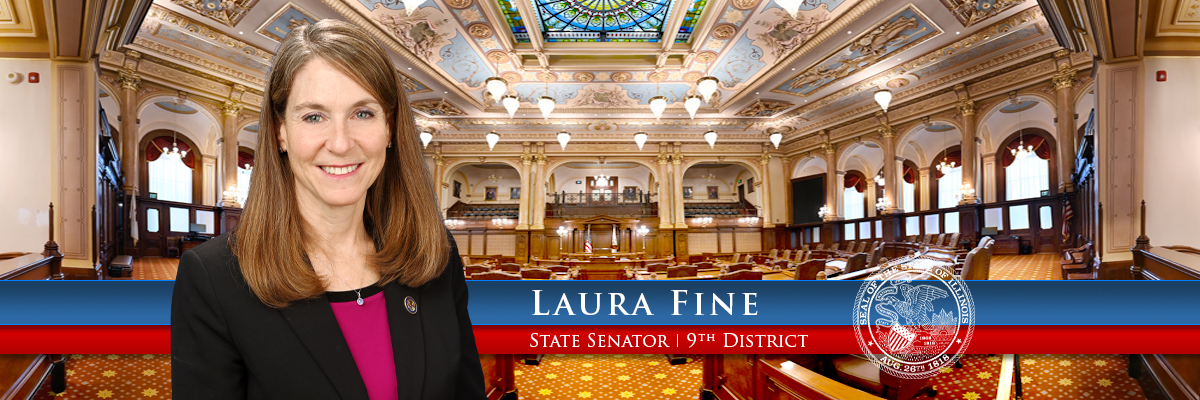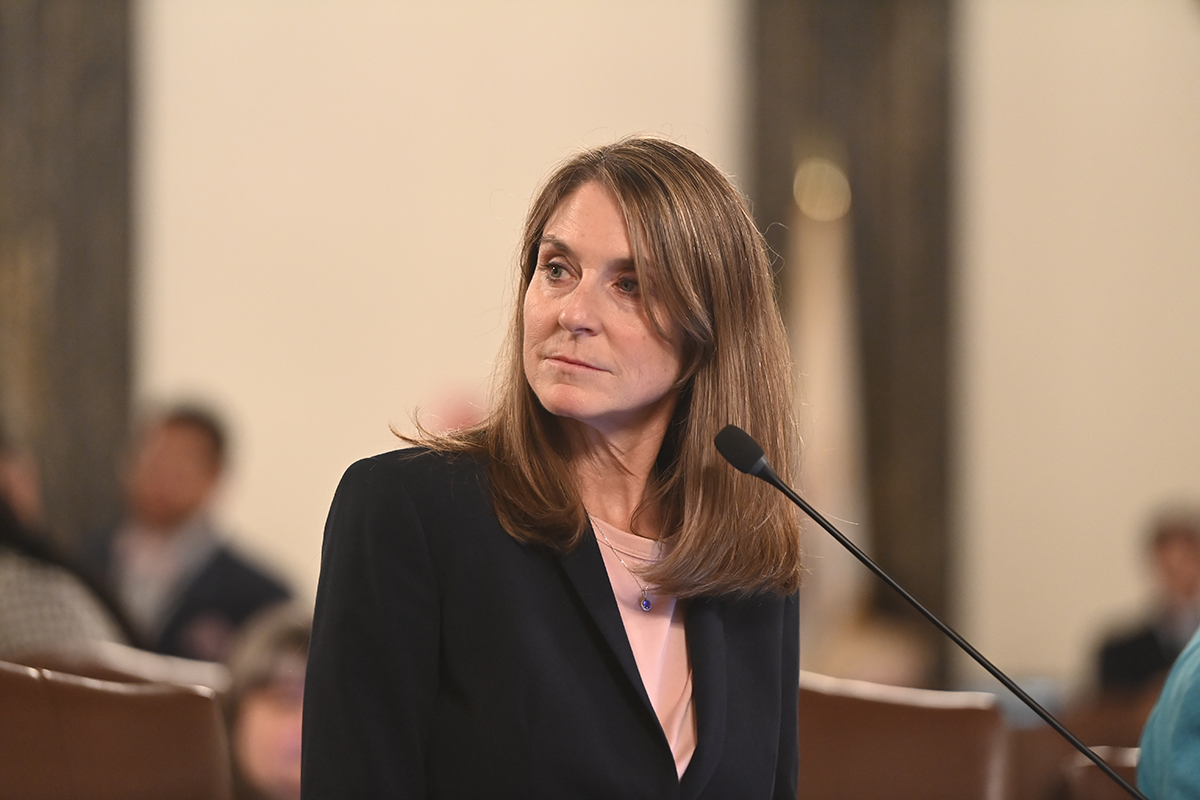Fine backs bill to extend Cook County property assessment appeal deadline
- Details
- Category: Press Releases
SPRINGFIELD – State Senator Laura Fine supported legislation to extend the number of business days Cook County taxpayers have to file a property tax appeal, standardizing the length of time taxpayers have to work through the appeals process.
“The property tax appeal process is often daunting for homeowners, and the current deadline established based on calendar days results in inequities among taxpayers and townships,” said Fine (D-Glenview). “This legislation will make the appeals process fairer for Cook County homeowners, giving them more time to attend workshops to help with this process, file and defend their appeal.”
The Cook County Assessor’s filing deadlines for taxpayer appeals can vary from year to year. This year, the assessor’s office established a deadline of 30 calendar days for filing complaints. However, the available business days for filing were different in each township after factoring in weekends and holidays, varying from 19 to 22 business days.
Senate Bill 1988 would establish uniform filing periods to ensure homeowners have adequate time to address their complaints to the assessor. The measure requires the Cook County Assessor to accept appeals for at least 30 business days after the date the increased property assessment was mailed or published on the assessor’s website.
Senate Bill 1988 heads to the governor for final consideration.
Senator Fine stands with Israel following terror attack
- Details
- Category: News
Over the past few days, I have participated in local vigils with thousands of people, and I have tried to digest the unimaginable horrors inflicted upon innocent victims. As a wife, mother, and member of the Jewish community, my heart breaks, as I cannot comprehend the full scope of atrocities of what has unfolded. Hamas terrorists have intentionally and brutally targeted women, children, and the elderly in their unspeakable attacks and are now holding Israelis, Americans, and others hostage. The futures and dreams of hundreds of people will never be realized because of these senseless acts of terrorism. I pray for the victims of these heinous acts and their families, and I send strength to every human being whose life has been upended by these unthinkable acts. Every elected official must unequivocally condemn these atrocious acts of terrorism for we can't live in a society where murdering innocent civilians is tolerated or justified in any way. I stand with Israel.
Fine’s law requires insurance to cover annual mental health visits
- Details
- Category: Press Releases
SPRINGFIELD – Illinoisans will soon have annual mental health wellness visits covered under their insurance at no additional cost, thanks to a new law sponsored by State Senator Laura Fine.
“Much like annual checkups for your physical health, annual mental health visits allow specialists to identify or address underlying mental health concerns or new symptoms that may have come up in the past year,” said Fine (D-Glenview). “Offering these annual visits at no additional cost will encourage people to treat their mental health as seriously as their physical health, and seek this form of health care that everyone can benefit from.”
House Bill 2847 requires health insurance plans under the Insurance Code, State Employees Group Insurance Act of 1971, the Counties Code, the Illinois Municipal Code and the School Code to cover annual mental health checkups and wellness visits starting in 2025.
Read more: Fine’s law requires insurance to cover annual mental health visits
Senator Fine applauds Supreme Court decision to uphold assault weapons ban
- Details
- Category: Press Releases

SPRINGFIELD – State Senator Laura Fine released the following statement after the Illinois Supreme Court upheld the General Assembly’s assault weapons ban:
“As a member of the community neighboring Highland Park, I saw up close the devastation these weapons can levy on our communities. I am grateful for the Illinois Supreme Court’s decision to uphold the assault weapons ban that will prevent further tragedies from taking place.”
More Articles …
Page 21 of 79









